philosophy

Shermer and Junger discuss: his near-death experience and his curent beliefs • NDEs and OBEs • hallucinations • altered states of consciousness • sensed presence effect • sleep paralysis • why there is no “proof” of an afterlife • living forever • belief in life after death • empirical truths vs. mythic truths • longevity and how to live longer.

Russell T. Warne discusses lessons learned from artificial intelligence regarding the human mind, including discussions on sentience, errors made by AI programs, creativity, and the propensity for AI programs to fabricate information.

hermer and Koch discuss: “subjective experience” • the author’s near-death experience changed him • the difficulties of materialism/physicalism • a fundamental theory of consciousness that explains subjective experiences in objective measures • designing a “consciousness detector” for unresponsive patients • why magic mushrooms and Ayahuasca are of so fascinating to neuroscientists • how our minds are shaped by our beliefs, prior experiences, and intentions • insights crucial to those suffering from anxiety, low self-esteem, post-traumatic stress, and depression. • the…
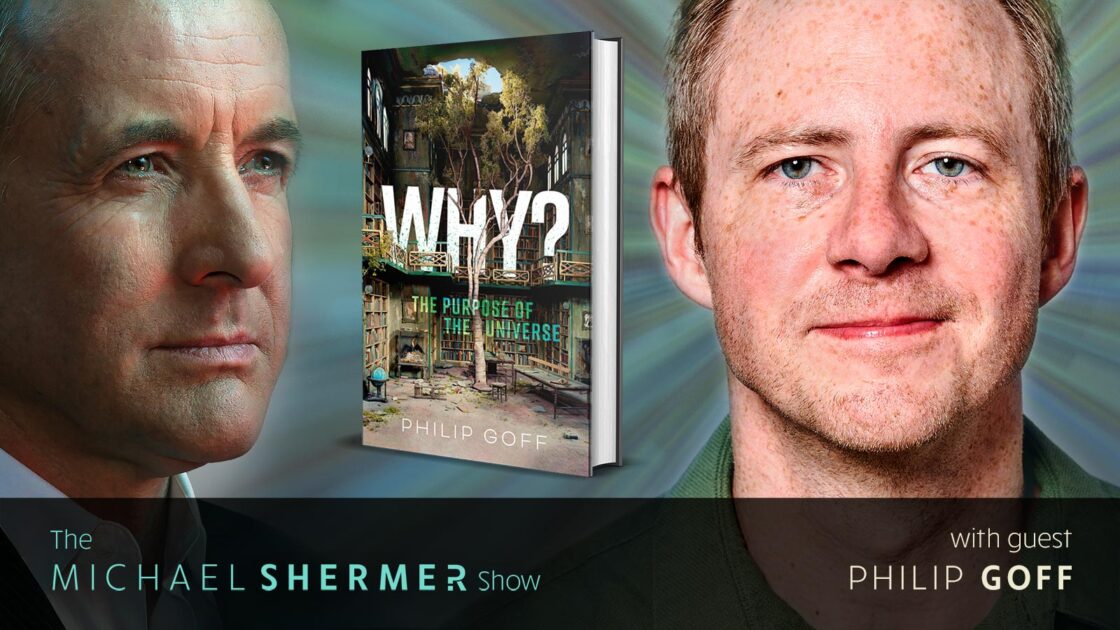
Shermer and Goff discuss: • living in a computer simulation • the universe itself as a conscious mind • cosmic purpose • fine-tuning • free will • consciousness (the ground of all being?) • morality and the Is-Ought Fallacy • What is my purpose in life? • religious vs. secular answers to the purpose question • awe and how to be spiritual but not religious.
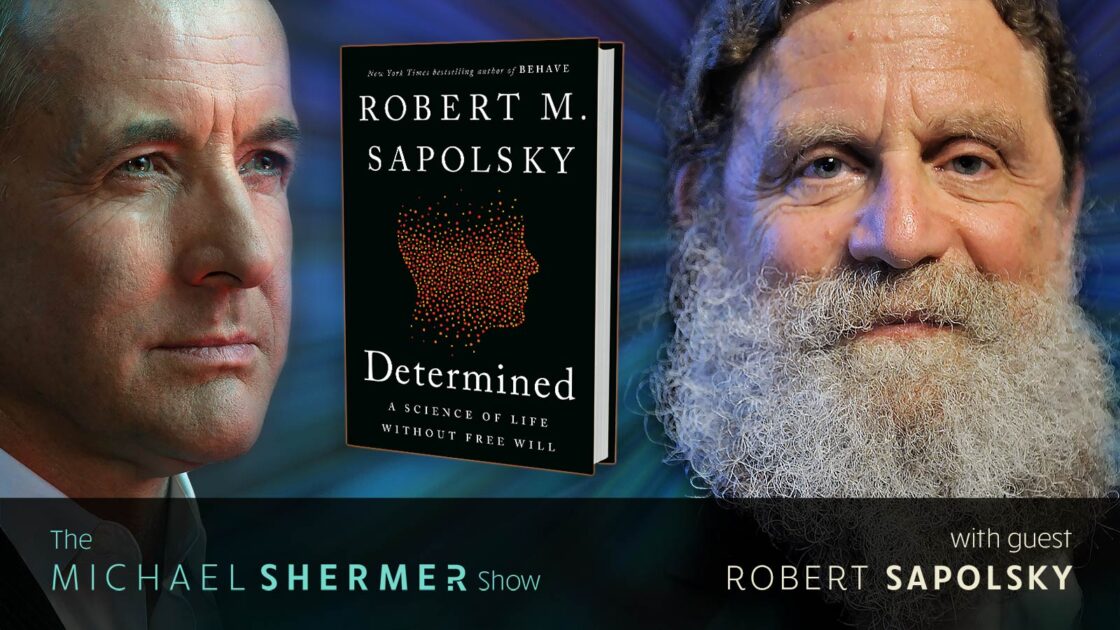
Shermer and Sapolsky discuss: free will, determinism, compatibilism, libertarian free will • Christian List’s 3 related capacities for free will • how what people believe about free will and determinism influences their behaviors • the three horsemen of determinism: (1) reductionism (2) predetermination; (3) epiphenomenalism • dualism • punishment • retributive vs. restorative justice •Is the self an illusion? • game theory evolution of punishment • luck • and meaning (or lack thereof).
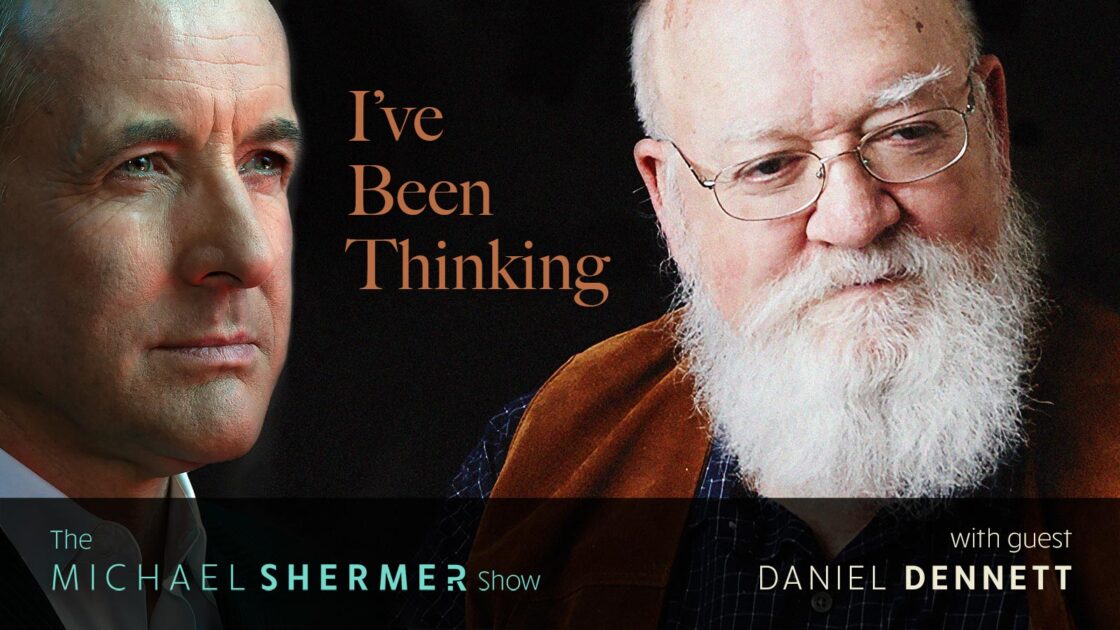
Preeminent philosopher and cognitive scientist, Daniel Dennett has spent his career considering the thorniest, most fundamental mysteries of the mind. Do we have free will? What is consciousness and how did it come about? What distinguishes human minds from the minds of animals? Dennett’s answers have profoundly shaped our age of philosophical thought. In his autobiographical I’ve Been Thinking, he reflects on his amazing career and lifelong scientific fascinations.

In their debate on free will, Doyle and Whittenberger present, explain, and defend contrasting, inconsistent, and in some ways contradictory models of human decision making. Whittenberger believes that the free will model is far inferior to the hard determinism model in so many ways, including conceptual clarity, the reasonableness of premises, and evidential support. Read Whittenberger’s response to Doyle.

My recent Skeptic article, “Free Will Is Real,” has prompted a response from Gary Whittenberger, who has previously written a standalone article for Skeptic in which he takes a stance against free will.1, 2, 3 Whittenberger’s response to me consists of several distinct points. A few of them are misunderstandings of my position. And a […]
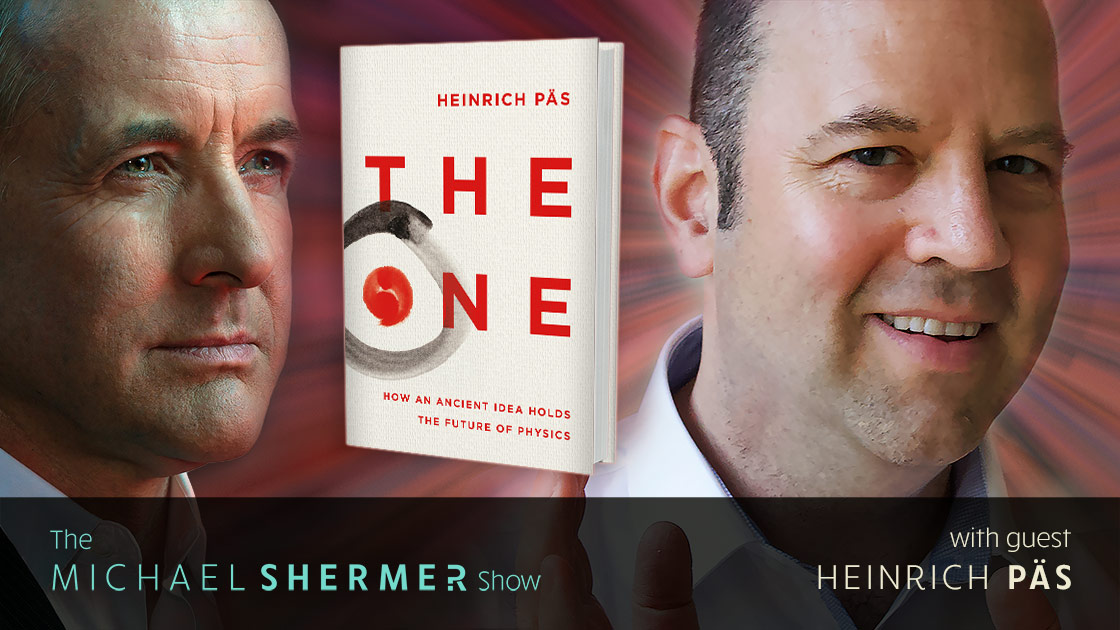
Shermer and Päs discuss: monism vs. dualism • What is time? • What is a field? • Is math all there is? Is math universal? • the double-slit experiment • superposition • metaphors in science • limitations of models and theories of reality • limitations of analogies between western physics and eastern mysticism • What banged the Big Bang? • Are we living in a matrix? • the Second Laws of Thermodynamics and directionality in nature • Model Dependent Realism • string theory, the multiverse, consciousness, the origin of the universe, and why…
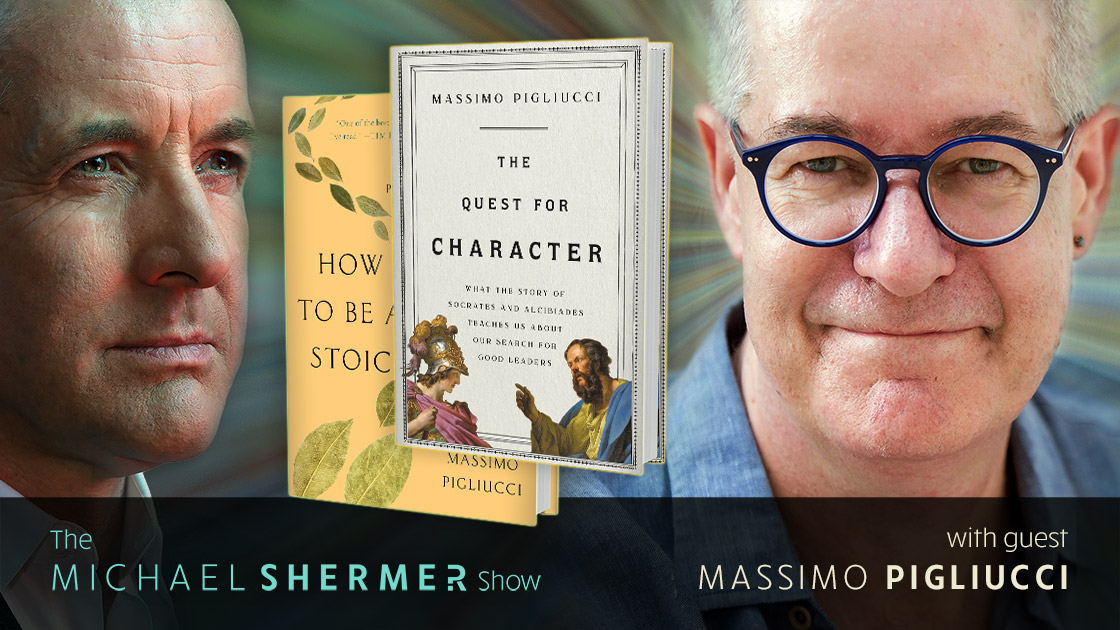
Shermer and Pigluicci discuss: his journey from Rome to New York • evolutionary biology • stoic philosophy • can there be a science of meaning and morality? • ultimate questions • desire, action, depression, suicide, anger, anxiety, love, and friendship • practical spiritual exercises • how to react to situations • teaching virtue to politicians • philosophy and politics • character and leadership • the nature of evil.
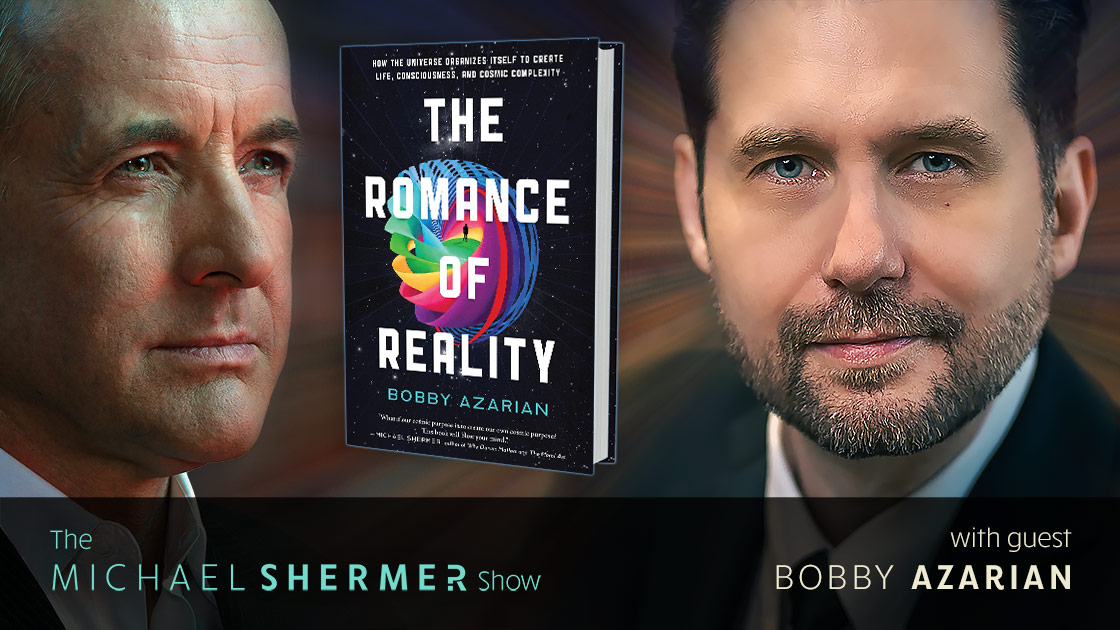
Shermer and Azarian discuss: laws of thermodynamics and directionality • how complexity formed after the Big Bang • laws of nature: discovered or created or both? • Stephen Jay Gould and contingency vs. necessitating laws of nature • convergent evolution and directionality in evolution • the left wall of simplicity • leading theories for the origin of life • complexity theory and emergence • consciousness, the self, and other minds • free will, determinism, compatibilism, panpsychism • Is there purpose…
Michael Shermer speaks with University Professor of Philosophy and Neural Science and codirector of the Center for Mind, Brain and Consciousness at New York University, Dr. David Chalmers, about his book Reality+: Virtual Worlds and the Problems of Philosophy.
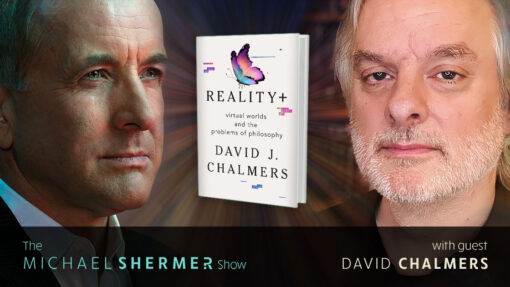
Michael Shermer speaks with University Professor of Philosophy and Neural Science and codirector of the Center for Mind, Brain and Consciousness at New York University, Dr. David Chalmers, about his book Reality+: Virtual Worlds and the Problems of Philosophy.
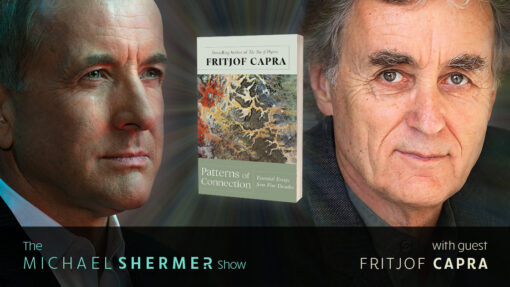
Michael Shermer and Fritjof Capra discuss: the making of a California holist • the influence of Werner Heisenberg’s Physics and Philosophy • 50 years of progress or regress • the 1960s counterculture and challenges to authority • metaphors in science: world as machine, world as alive • limitations of models and theories of reality • limitations of analogies between western physics and eastern mysticism • mind and consciousness • the Santiago theory of consciousness • what it means to be…
In episode 229, Michael Shermer speaks with Fritjof Capra on Patterns of Connection. PLUS for the next 12 days, now through December 4, 2021, shop our biggest sale ever! Get 40% off digital subscriptions via pocketmags.com, and get 25% off everything at shop.skeptic.com including magazine print subscriptions and back issues!
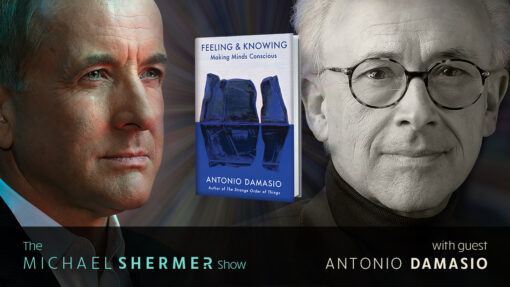
In episode 221, Michael Shermer speaks with Antonio Damasio about recent findings across multiple scientific disciplines that have given rise to new understandings of consciousness.
In episode 221, Michael Shermer speaks with Antonio Damasio about recent findings across multiple scientific disciplines that have given rise to new understandings of consciousness.
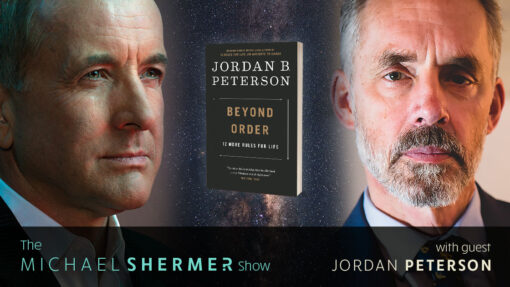
Michael Shermer and Jordan Peterson discuss: the balance between chaos and order • Maps of Meaning • truths: objective, subjective, historical, political, religious, and literary • why all countries aren’t democracies • the appeal of populist, authoritarian leaders • the danger of assessing according to race, sex, class and power • oppression-redemption myths • how Peterson’s dark dreams and mental health issues inform his worldview as tilting toward the darker side of humanity.
In episode 174, join Michael Shermer and Jordan Peterson (bestselling author of 12 Rules for Life) for this extraordinary conversation based on Peterson’s new book Beyond Order. PLUS: Save 40% on new digital subscriptions to Skeptic Magazine via Pocketmags.com, now through April 27, 2021!
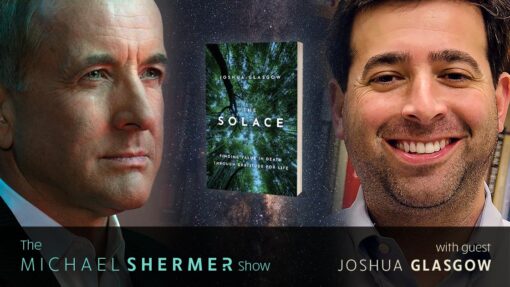
Shermer and Glasgow discuss: What does an atheist say to a dying person? • Ricky Gervais’ The Invention of Lying • being dead vs. dying • When is the “natural” time to die? • Is death worse for the young because they are losing more? • What would it really mean to live forever? • suicide • Does a terminus to life increase it’s meaning and value? • gratitude vs. solace.
NEXT →
























